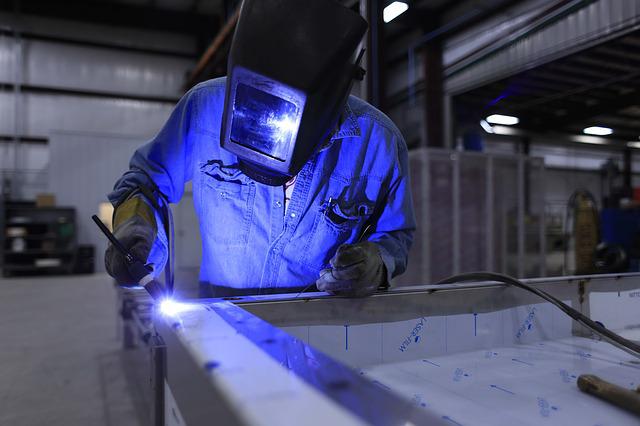
Logistics coordinators are responsible for ensuring goods arrive at their destination on time, and in the most cost-effective manner possible. As a logistics coordinator, you will make sure that the goods reach their destination on time. Learn more about logistics in this article. We will also discuss the roles of customer service specialists, inventory analysts, and supply chain managers. Listed below are some of the top jobs that you can find in logistics.
Logistics coordinator
Monster lists thousands of logistics coordinator jobs. This job requires extensive training. Candidates who have little or no industry experience will be expected to complete the apprenticeship or internship. You may be interested in a job as logistics coordinator if you have previous experience.

Customer service specialist
Customer service specialists are responsible for managing and delivering customer service. They are responsible for communicating with customers every day, coordinating inland transport, and resolving customer issues and complaints. They coordinate customer relations, manage appointments, handle special service requests, schedule transportation and warehousing, and document them. As a customer support specialist, you will also coordinate all necessary documents and documentation to ensure timely and affordable delivery.
Inventory analyst
An Inventory Analyst is responsible to maintain service level and improve inventory productivity. Their primary responsibilities include order fulfillment for TSC Feed programmes, as well managing the day to day activities of inventory replenishment. They assist with assortment and merchandise plans by managing inventory levels within their product categories. They use data to analyze trends and plan article-site replenishment. They may also assist in promotion and marketing. They are often responsible for analysing sales data and creating new business strategies.
Supply chain manager
A supply chain manager oversees the movement and distribution of materials and goods from suppliers, manufacturers, customers, and other parties. This job requires a wide variety of skills. A bachelor's is often required. Employers also prefer applicants with a master's degree in business administration. You have many options for getting a job in supply chain management. Learn more about this field. You should first get an associate's level in business administration if your goal is to enter supply chain management.

Freight agent
Make sure you include a section on the responsibilities of your freight agent and cargo when creating your job descriptions. Potential applicants will be able to see the main responsibilities for this job in the job description. Strong action verbs are important in your job description to attract qualified applicants. The job description should also include a detailed list of qualifications you need to fill this position.
FAQ
What does the term manufacturing industries mean?
Manufacturing Industries are businesses that produce products for sale. These products are sold to consumers. This is accomplished by using a variety of processes, including production, distribution and retailing. These companies produce goods using raw materials and other equipment. This covers all types of manufactured goods including clothing, food, building supplies and furniture, as well as electronics, tools, machinery, vehicles and pharmaceuticals.
What is the responsibility of a logistics manager?
A logistics manager ensures that all goods are delivered on time and without damage. This is done through his/her expertise and knowledge about the company's product range. He/she also needs to ensure adequate stock to meet demand.
What are the essential elements of running a logistics firm?
To be a successful businessman in logistics, you will need many skills and knowledge. To communicate effectively with clients and suppliers, you must be able to communicate well. You need to understand how to analyze data and draw conclusions from it. You must be able to work well under pressure and handle stressful situations. You must be creative and innovative to develop new ideas to improve efficiency. Strong leadership qualities are essential to motivate your team and help them achieve their organizational goals.
You must be organized to meet tight deadlines.
What are the responsibilities of a manufacturing manager
Manufacturing managers must ensure that manufacturing processes are efficient, effective, and cost-effective. They should also be aware and responsive to any company problems.
They should also be able and comfortable communicating with other departments like sales and marketing.
They should be informed about industry trends and be able make use of this information to improve their productivity and efficiency.
Statistics
- In the United States, for example, manufacturing makes up 15% of the economic output. (twi-global.com)
- Many factories witnessed a 30% increase in output due to the shift to electric motors. (en.wikipedia.org)
- Job #1 is delivering the ordered product according to specifications: color, size, brand, and quantity. (netsuite.com)
- According to a Statista study, U.S. businesses spent $1.63 trillion on logistics in 2019, moving goods from origin to end user through various supply chain network segments. (netsuite.com)
- [54][55] These are the top 50 countries by the total value of manufacturing output in US dollars for its noted year according to World Bank.[56] (en.wikipedia.org)
External Links
How To
How to Use Lean Manufacturing for the Production of Goods
Lean manufacturing is an approach to management that aims for efficiency and waste reduction. It was developed in Japan between 1970 and 1980 by Taiichi Ohno. TPS founder Kanji Tyoda gave him the Toyota Production System, or TPS award. Michael L. Watkins published the "The Machine That Changed the World", the first book about lean manufacturing. It was published in 1990.
Lean manufacturing is often defined as a set of principles used to improve the quality, speed, and cost of products and services. It emphasizes the elimination of defects and waste throughout the value stream. Lean manufacturing is called just-in-time (JIT), zero defect, total productive maintenance (TPM), or 5S. Lean manufacturing focuses on eliminating non-value-added activities such as rework, inspection, and waiting.
Lean manufacturing can help companies improve their product quality and reduce costs. Additionally, it helps them achieve their goals more quickly and reduces employee turnover. Lean manufacturing has been deemed one of the best ways to manage the entire value-chain, including customers, distributors as well retailers and employees. Lean manufacturing is widely used in many industries. Toyota's philosophy, for example, is what has enabled it to be successful in electronics, automobiles, medical devices, healthcare and chemical engineering as well as paper and food.
Five basic principles of Lean Manufacturing are included in lean manufacturing
-
Define Value - Determine the value that your business brings to society. Also, identify what sets you apart from your competitors.
-
Reduce waste - Get rid of any activity that does not add value to the supply chain.
-
Create Flow: Ensure that the work process flows without interruptions.
-
Standardize & simplify - Make processes consistent and repeatable.
-
Build relationships - Develop and maintain personal relationships with both your internal and external stakeholders.
Lean manufacturing, although not new, has seen renewed interest in the economic sector since 2008. Many businesses have adopted lean production techniques to make them more competitive. In fact, some economists believe that lean manufacturing will be an important factor in economic recovery.
Lean manufacturing, which has many benefits, is now a standard practice in the automotive industry. These include improved customer satisfaction, reduced inventory levels, lower operating costs, increased productivity, and better overall safety.
Any aspect of an enterprise can benefit from Lean manufacturing. Because it makes sure that all value chains are efficient and effectively managed, Lean Manufacturing is particularly helpful for organizations.
There are three main types:
-
Just-in Time Manufacturing, (JIT): This kind of lean manufacturing is also commonly known as "pull-systems." JIT refers to a system in which components are assembled at the point of use instead of being produced ahead of time. This strategy aims to decrease lead times, increase availability of parts and reduce inventory.
-
Zero Defects Manufacturing (ZDM): ZDM focuses on ensuring that no defective units leave the manufacturing facility. It is better to repair a part than have it removed from the production line if it needs to be fixed. This applies to finished goods that may require minor repairs before shipment.
-
Continuous Improvement (CI),: Continuous improvement aims improve the efficiency and effectiveness of operations by continuously identifying issues and making changes to reduce waste. Continuous improvement involves continuous improvement of processes and people as well as tools.